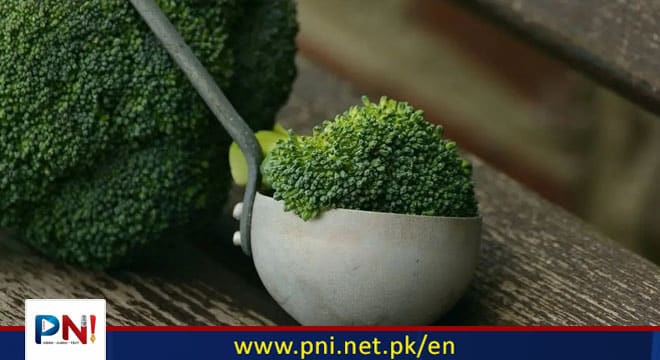ISLAMABAD, Nov 06 (Online): Broccoli, kale, collards, cabbage, Brussels sprouts, and mustard greens are cruciferous vegetablesTrusted Source or brassicas we’re told are good for us.
Scientific evidence supporting the age-old advice to eat your greens is growing, with studies showing that brassicas may help:
• prevent some cancersTrusted Source
• improve cardiovascular healthTrusted Source
• regulate blood glucoseTrusted Source
• reduce inflammation
Moreover, new evidence suggests those health benefits may be even greater if brassicas, particularly broccoli, are eaten as young sprouts soon after germinating.
A study from Osaka University, published in Redox Biology, found that broccoli sprouts have a significantly higher concentration of polysulfides than mature broccoli five days after germination.
Why are microgreens so healthy?
The health effects of brassicas are generally attributed to their organosulfurTrusted Source compounds, which give them their strong smell and flavorTrusted Source. These include glucosinolates, isothiocyanates, and polysulfides.
In this study, researchers investigated the concentration of polysulfides in broccoli sprouts during germination and growth. The study built on their previous workTrusted Source on polysulfide concentrations in 22 vegetables, including onions, garlic, and broccoli.
They germinated and grew the seeds in ultrapure water — water purified to ensure it contained only water molecules — at around 25 degrees Celsius. They harvested some every 24 hours, then powdered them in liquid nitrogen and stored this powder at -80 degrees Celsius.
They then used chemical analysis to determine the concentration of polysulfides at each stage of germination and growth.
During the five days of growth, although the total sulfur content of the plants was unchanged, the proportion of polysulfide increased dramatically. From less than 1% polysulfide in the seed, by day 5, the shoots had 15.5% polysulfide, an approximately 20-fold increase.
Kelsey Costa, registered dietitian and nutrition consultant for the National Coalition on Healthcare, not involved in the study, told Medical News Today:
“The research suggests that the health benefits of broccoli sprouts can be attributed, in part, to the plentiful polysulfides present in them. Sprouts are the miniature, concentrated versions of the plants they will develop into. They offer a nutrient-dense, cost-effective, quick-growing option for anyone wanting to grow their own food in a small space.”
Costa said she was not surprised by the findings, but noted, “Further research is needed to fully understand the mechanics of polysulfide production and its role in seed germination and sprout growth.”
Why do broccoli sprouts have more health benefits?
When asked why broccoli sprouts contain more polysulfides, Dr. Lauren Blekkenhorst, postdoctoral research fellow with the Nutrition and Health Innovation Research Institute at Edith Cowan University, Australia, explained:
“Broccoli sprouts are young in their growth phase and hence more vulnerable to environmental stressors. As a result, broccoli sprouts likely have higher concentration of polysulfide compounds to protect the plant from damage.”
“As the broccoli plant matures and becomes less vulnerable to environmental stressors, the levels of these compounds decrease but are still present as the plant still needs to be protected from environmental stressors but to a lesser degree,” she added.
As well as identifying the greatly increased concentration of known polysulfides, the researchers found several unknown ones.
The authors suggest that these compounds, for which the molecular structures have yet to be determined, could lead to more developments in studying how plant nutrients may benefit human health.
Follow the PNI Facebook page for the latest news and updates.









